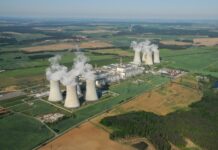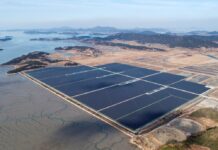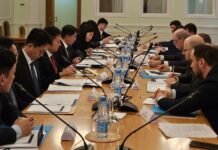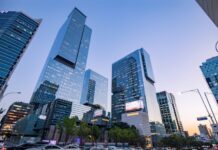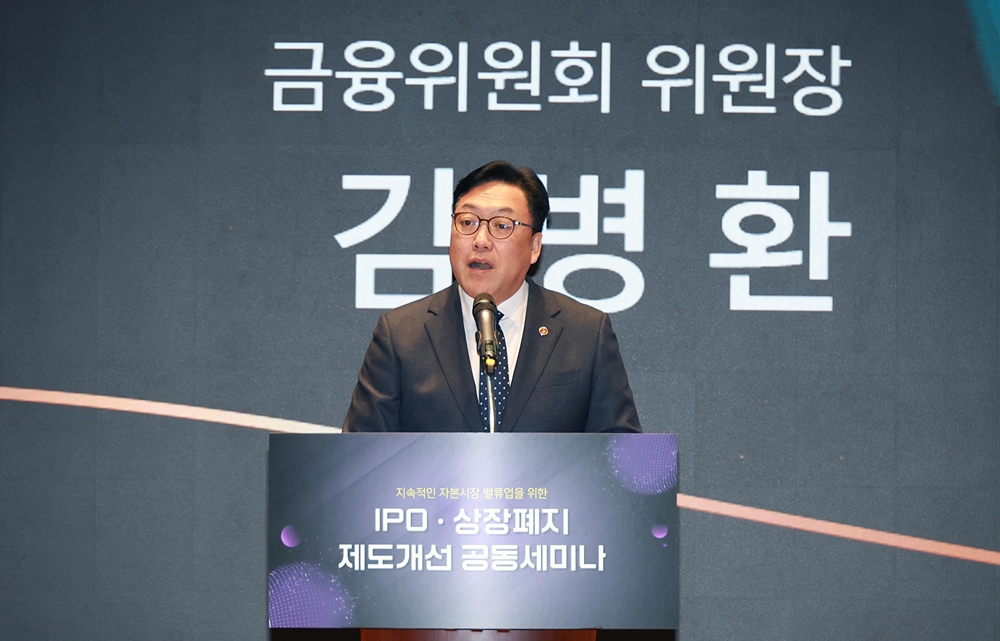
Financial Services Commission (FSC) Chairman Kim Byoung Hwan gives a congratulatory speech on Jan. 21 at a joint seminar held at the Korea Exchange in Seoul’s Yeouido neighborhood to describe policy improvements for initial public offerings (IPO) and delisting. (FSC)
By Gil Kyuyoung
The financial authorities have halved the review period for delisting from the Korea Composite Stock Price Index, or KOSPI, to speed up the removal of “zombie companies.” Such companies will be immediately delisted from the second half of the year if they receive two consecutive “unqualified” evaluations.
The Financial Services Commission (FSC) and Financial Supervisory Service held a seminar on Jan. 21 at the Korea Exchange (KRX) in Seoul’s Yeouido neighborhood along with the KRX, Korea Financial Investment Association and the Korea Capital Market Institute. The seminar was on policy improvements for initial public offerings (IPO) and delisting.
The essence of the reform is the swift removal of zombie companies, which are considered the main reason for the “Korea discount,” or the undervaluation of the Korean stock market.
A zombie company is an enterprise that has a poor business performance and cannot sustain itself, but survives due to support from a bank or the government.
To this end, the market capitalization required for a KOSPI listing will gradually be raised from KRW 5 billion to a maximum of KRW 50 billion, and sales from KRW 5 billion to a maximum of KRW 30 billion by 2029.
The market capitalization threshold for the Korean Securities Dealers Automated Quotations, or KOSDAQ, will be raised from KRW 4 billion to KRW 30 billion, and sales from KRW 3 billion to KRW 10 billion.
Penalties for evaluations as unqualified will become stricter. A company that receives two consecutive evaluations as unqualified will be immediately delisted.
The screening process for delisting will be shortened from the current maximum of four years to two. The screening stages for the KOSDAQ will be streamlined from a three-step process to two.
Financial Services Commission (FSC) Chairman Kim Byoung Hwan said, “We will continuously amend the stock market to create a market structure for higher efficiency and protection of investors.”
gilkyuyoung@korea.kr


